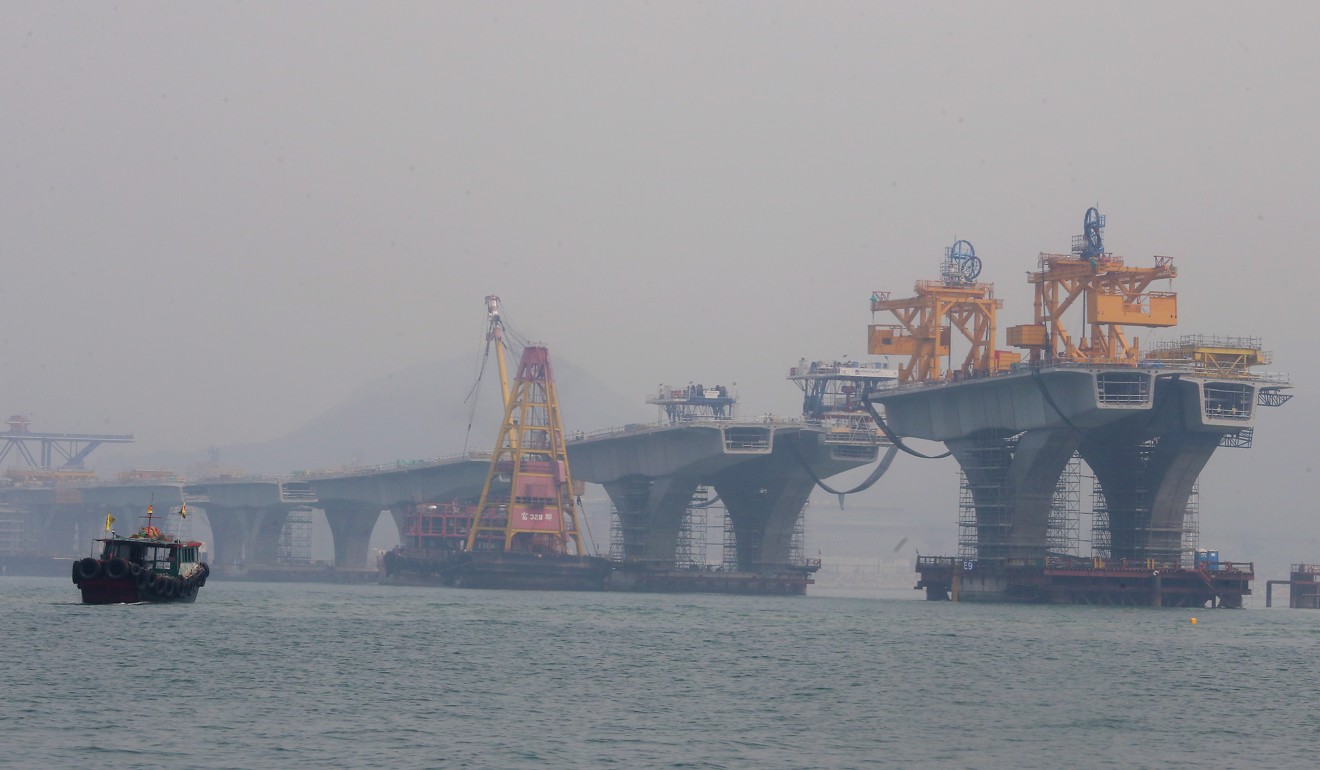
Coordinate Greater Bay Area’s environmental standards as the economies integrate, experts urge
Divergent policy targets mean efforts to cut air pollution can only go so far
Hong Kong and the Pearl River Delta region should capitalise on the “Greater Bay Area” scheme to deepen cooperation and harmonise environmental standards, especially on air quality, experts say.
The region shares the same airshed, but divergent policy targets and standards mean regional efforts to reduce air pollution that recognises no borders can only go so far, they added.
Air quality management and standards should be uniform, according to Professor Yuan Zhibing of Guangzhou’s South China University of Technology’s school of environment and energy.
Pearl River Delta’s poorer cities plan big changes in ‘Greater Bay Area’ push
“This sort of harmonisation and collaboration would be very important,” he said.
Yuan believed the integration could extend to environmental protection.
“I would recommend ... breaking up the administrative borders on the problem [of air pollution].”
Hong Kong, Macau and Guangdong already have platforms to tackle pollution, such as the Joint Working Group on Sustainable Development and Environmental Protection, set up in 2000.
The respective authorities have already set regional emission reduction targets for 2015 and 2020 and collaborate on monitoring air quality.
Guangdong does its own thing, Hong Kong does its own thing
But Yuan believed these platforms lacked “real power”.
“Guangdong does its own thing, Hong Kong does its own thing,” the professor said, adding that “a lot of the time they blame each other” for the pollution.
Yuan recommended regional governments under the Greater Bay Area plan come up with a “unified air quality management organisation or unit” authorised to coordinate collaboration and standards.
He also called for a regional “scientific think tank” set up by the governments to study cross-border pollution issues such as ozone.
“We need a common standard,” said Professor Jimmy Fung Chi-hung of the Hong Kong University of Science and Technology’s environment division.
Fung added the goal could be to achieve something comparable to what California has realised. The US state’s environmental standards are generally stricter than those of the federal level.

“If we have common air quality standards [for the region], we will continue to tighten these common air quality standards,” he said. “China will have incentive to continue improving national air quality standards.”
Fung pointed to clear discrepancies between standards, such as Shenzhen’s commitment to reduce targets for fine particulate matter – also known as PM2.5 – to the second of three World Health Organisation interim targets by 2020.
Hong Kong’s current air quality objectives are on track only to meet the first target by then.
‘Innovation’ needed to capitalise on Greater Bay Area, Hong Kong official says
Fung said the Greater Bay Area could also see other standards harmonised, such as those relating to environmental impact assessments.
Claiming Hong Kong’s standards were “considered quite rigorous”, he said unifying environmental standards “would be great” for the Bay Area.
Hong Kong’s Environmental Protection Department is reviewing the air quality objectives and will consult the public next year.

